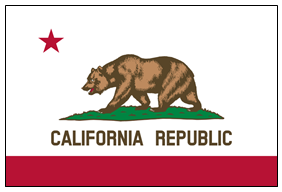
Under the federal government’s new measurement of poverty, California is in last place — or at the top of the state rankings with a 23.5 percent poverty rate.
Meaning almost a fourth of its residents are living in poverty, according to the new “supplemental poverty measure” (SPM) developed by the Census Bureau.
This new system weighs the cost of housing, goods and services into its metrics more heavily than in the past. Whether this method of measuring poverty is an improvement upon the last system or not, it sure doesn’t bode well for California.
This state, now under a super-majority of Democratic leadership so Republicans cannot stop any new schemes, is excelling in all the wrong areas and continues to sink in areas of growth and prosperity.
Unfortunately, poverty isn’t the only area where the Golden State reigns supreme. California has the third highest unemployment rate in the nation at 10.2 percent. The state faces an unfunded liability of $100 billion in its Public Employees’ Retirement System and $65 billion in its State Teachers’ Retirement System. Furthermore, the state has a roughly $16 billion budget deficit.
The icing on the cake: On Nov. 6 Californians approved of Proposition 30, a massive tax hike on the state’s wealthiest residents. For single taxpayers with taxable income of $300,000, it will mean an extra $500 in taxes, reports the San Luis Obispo Tribune. For a married couple filing jointly who pull in $600,000, it’s an extra $1,000 in state income taxes. The article goes on to state that for the richest living in the Golden State making more than $1 million, their new tax rate hits 13.3 percent — almost a 30 percent rate hike above their current rate.
And, of course, the cherry on top: California recently had its first cap-and-trade auction Nov. 14. The California Air Resources Board said 23.1 million permits, which allow for one ton carbon, sold for $10.09 each at the auction.
California is paving the way for a cap-and-trade program envied by many other elected politicians — including the president. This program stems from the state’s 2006 global warming regulations attempting to reduce emissions of greenhouse gases. Businesses in the state are now required to cut emissions to desired levels or buy pollution allowances from other companies. Many California industries, including petroleum refiners, have been outspoken opponents of this program.
The Sacramento Bee explains, “Many affected businesses call it a cleverly disguised tax that will cost them upwards of $1 billion in the first year. The expense will balloon in 2015, when refineries will have to buy more credits to cover greenhouse gases spewed by cars and trucks.”
The paper goes on to quote Bill Klesse, the chief executive of Valero Energy Corp., owner of two California refineries, who ripped the upcoming auction during a call with investors. “They’re coming up with regulations that are totally not workable,” he said.
If this program is affecting the state’s refineries, you can bet it will affect their customers as well. California has some of the most stringent fuel regulations in the nation already making the necessary product comparatively more expensive. The state’s refineries and manufacturing businesses aren’t going to eat the cost of this cap-and-trade program on their own — it will be shared with the people of California.
With this new program going into effect, coupled with recently enacted higher taxes, it is not unreasonable to assume that many businesses are looking to make a move.
Neighboring Phoenix is offering free airfare and a hotel stay to CEOs of California businesses who are interested in Arizona’s much friendlier business environment. Other companies have sought refuge in states like Texas, where burdening regulations that squeeze out any and all incentives from owning a business or hiring employees don’t exist.
California couldn’t be more upside down. Instead of taking the road to prosperity it is on the one to poverty. Instead of creating a business-friendly environment, it enacts strangling environmental and tax regulations that choke companies out.
If the road to Hell is paved with good intentions, then perhaps at the end of the road sits Hotel California.
Rebekah Rast is a contributing editor to Americans for Limited Government (ALG) and NetRightDaily.com. You can follow her on twitter at @RebekahRast.






